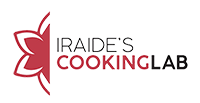Immune System Part II

The Importance of our Immune System
The relationship between nutritional balance and the immune system has been the subject of study for more than 50 years.
The human being has had to face various plagues, pandemics etc. Throughout its history, each one more dangerous and scaring.
The conclusions of many scientific studies have led to these two conclusions:
- The nutritional state of the guest (our body) is determinant to allow or prevent viral and bacterial infections.
- Nutritional deficiencies of the guest allow the mutation of viruses in more virulent or dangerous ways.

Micronutrients
Many micronutrients are present in food, including lutein, lycopene, bioflavonoids, riboflavin, zinc, selenium, lentinan, etc. that have immunomodulatory functions.
On the contrary, there are foods and other complements that we ingest that make us vulnerable (immunologically speaking).
Today, with the consumption of processed foods, nutritional deficiencies have become normal in our society. Which, if we add to this stress and negative emotions, and pesticides in the environment, make our immune system get depressed easily.

Food and Substances that depress the immune System
In general, a state of metabolic acidity favours a depressed immune system, with little capacity to react to a virus attack. There are tremendously acidifying foods that can enhance the negative effect that viruses and bacteria can have on our body.
- Refined Sugar
White sugar seems to be the great large-scale enemy of overall health. It’s a hidden ingredient used in the most diverse foods for basically for two purposes: to soften flavours and as a preservative.
But this harmful chemical and manipulated ingredient can produce many harmful health effects, for example:
- Acidifies our internal environment. Sugar produces acidic toxins when are metabolized by our organism.
- The reaction of our white blood cells decrease.
Sugar is “hidden” in many of the food we eat, from sweet to savoury food. It’s used by the food industry as a preservative in many processed food.

- Dairies
The human being, in adulthood, does not produce an important enzyme (the lactase) to breakdown the lactose. This can cause important damage to the intestinal mucosa. The lactose goes through the intestine partially digested. And therefore the microbiota and its ecosystem are altered.
The large molecules of milk protein make the body have to produce large amounts of antibodies, which our immune system is not capable of producing. As a consequence, our body is forced to create them but the system gets “exhausted”, making us weaker to a possible attack of virus and bacteria.
- Antibiotics
The use of antibiotics destroys the intestinal microbiota. The simple fact of having gone to the dentist and having been prescribed antibiotics to prevent infections can alter our intestinal microorganism.
So, this condition of our “inner balance” can be a breeding ground for a weakened immune system and prone to having infections from possible viruses such as this one.
- Tap Water
An element so available to everyone, but as it’s treated by treatment plants, they pour large amounts of fluorine that can depress our immune system, and chlorine, which gradually destroys our intestinal flora.

Foods that Favour Immune System
- Reishi
It’s known in China as “the mushroom of immortality.” Great activator of the immune system, reishi is normally sold in the West in powder form and can be added to soups or creams. Its action is enhanced if ingested with foods that are high in vitamin C.
- Beta and Alpha Carotene
The vegetables of yellow-orange colour, exert a calming effect on the intestinal mucosa. In addition to that, they are antioxidants and help cells to function properly.
- C Vitamin
In synergy with other vegetables (reishi mushrooms for example) and as a preventive it works as a protector of the immune system. Present in citrus fruits, but also parsley has a lot of vitamin C. You can make vegetable broths and add a bunch of parsley at the end. If you cook it for a long time it’s destroyed, it’s a delicate hydro-soluble vitamin.
Lapacho or Pau D’arco:
It fights against bacterial and viral infections but is also useful in cases of intestinal inflammation. It can be taken in infusions. It has a pleasant flavour and can be combined with other plants that protect us from infections such as thyme, rosemary, mallow …
- Echinacea
Has anti-inflammatory and antiviral properties. It’s beneficial for both immune and lymphatic systems.
One of the most protective probiotics for our intestinal microbiota. The properties of miso are many. It’s protective of the mucosa, helps the production of enzymes, and has lactobacilli that feed our intestinal microorganisms. You have to buy it unpasteurized and it does not have to boil when we add it to broths and soups.
There are many condiments, herbs and supplements that we can use to strengthen our immune system that I have not mentioned, but there’s a wide variety of them for using that are effective.
In conclusion, I have to say that, it’s very important to detox the body and when we see that it’s overloaded and presents symptoms of immune weakness, not eating too much and taking hot broths during the day, until our balance is restored.
